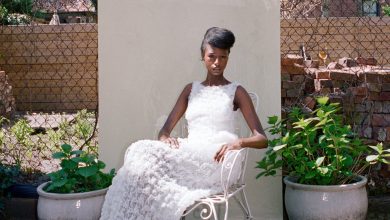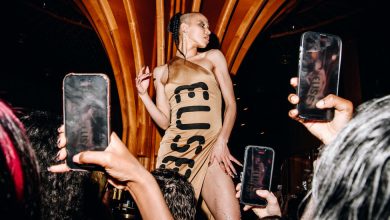‘Law & Order’ Is Having an Identity Crisis

If you were going to watch a police procedural — which, for the record, I don’t particularly recommend — you could do worse than NBC’s “Law & Order” franchise. Across 32 years and more than 1,200 episodes, the original series and its six American spinoffs have offered a gentle critique of law enforcement, presenting a parade of flawed individuals navigating a byzantine justice system. Detectives are stymied by bureaucrats and squabble with lunkhead patrol officers, who reliably contaminate crime scenes. Idealistic prosecutors grow disillusioned and leave for nonprofit work. And yet the franchise still hinges on a lesser-of-two-evils logic: The institutions may be imperfect, and the cops imperfect, but their vocation is, by definition, good. There are always more victims to avenge, and none better equipped to do it than the New York Police Department.
This cautiously optimistic view of policing was once embodied by Elliot Stabler, the detective played by Chris Meloni since the 1999 premiere of “Law & Order: Special Victims Unit.” A hotheaded ex-Marine, Stabler initially clashed with authority and struggled to adapt to married life, receiving reprimands from his captain and consulting a shrink. But paired with his compassionate partner, Olivia Benson (Mariska Hargitay), he proved an exemplary cop and father. He was dogged and intuitive, a man who gave more than he took, rough around the edges but heroic nonetheless.
And yet the franchise’s latest spinoff, “Law & Order: Organized Crime,” has done away with all that fortitude. In the pilot, Stabler’s wife is killed by a car bomb, leading him to contemplate violent retribution. He grows a goatee. He goes undercover. He has a rockin’ good time. In a scene from the second season, airing now, we find him training in a boxing gym, where he’s approached by a sultry mob wife — a suspect in a sex-trafficking sting — who presents him with a pair of carnation-pink panties and invites him to her home. Once there, Stabler spikes her drink with an incapacitating agent, and they kiss until she passes out. Stabler hustles into her bedroom and riffles for evidence, escaping through a back door when her husband arrives.
Never mind how implausible this sequence feels, especially given Stabler’s background as a sex-crimes detective. The tone is sleazy, owing more to 1980s action flicks than the trademark “Law & Order” grit. It’s a far cry from the franchise’s origins: middle-aged cops and attorneys plagued with lousy diets and troubled families, a dour but lively metropolis teeming with nosy neighbors and wisecracking witnesses. Instead, “Organized Crime” depicts a backlot version of New York, its desolate cityscapes almost devoid of pedestrians. Stabler’s task force targets deep-pocketed warlords and ethnic outfits, armed traffickers who hijack shipping containers and vaccine supplies. Officers meet informants on abandoned waterfronts, and everybody drives around in a giant black S.U.V. Cruising gang-controlled neighborhoods, Stabler is anxious, adrift and thirsty for vengeance. Whatever happened to America’s dad?
While Stabler busies himself with mobsters and madams, the long-running “Special Victims Unit,” whose fictional plots often riff on real-world headlines, has become a lugubrious public-service announcement on modern policing. Now a captain, Benson has been elevated to virtual sainthood, leading an understaffed unit and deflecting misogyny from her superiors. In the aftermath of George Floyd, even her pristine character is tested by institutional bias and dysfunction — and her commanding officer, a Harvard-educated Black man, is replaced by a chauvinistic white man prone to victim-blaming.
Benson’s relentless drive for justice remains. An arc in the 22nd season recalls the 2020 Central Park bird-watching incident, in which a white woman filed a false report against a Black man. (The charge against her was later dismissed.) The show’s stand-in for the bird-watcher is arrested; after he’s exonerated, Benson apologizes. “We both want the department to own up to their mistakes and to make changes moving forward,” she tells him. “We can get rid of the worst cops.” Her promise echoes Mayor Eric Adams’s campaign claim that he once worked to “reform the police” from the inside, and it’s a stretch even by “Law & Order” standards. The franchise once focused on good work done by flawed people, but now even “S.V.U.” takes a more evangelistic stance. Police departments may abuse their power, it concedes, but they are redeemed by the likes of Olivia Benson.
What’s jarring about the way “Organized Crime” and “S.V.U.” have diverged is how thoroughly both shows sacrifice realism to preserve optimistic attitudes toward policing. The original “Law & Order,” which aired from 1990 to 2010 (a revival begins this month), took pains to establish its characters as public servants, not superheroes. On the job, the detectives and attorneys wore drab, rumpled suits and worked desk phones from cramped offices. Off the job, they drank and avoided their families, because dealing with predators makes for a harrowing day. For some of them — Sam Waterston’s Jack McCoy, S.Epatha Merkerson’s Anita Van Buren — the lack of glamour suggested selflessness: Clearly they could’ve made more money elsewhere.
Judging by the show’s longevity, this vision was a palatable one, a big-tent philosophy that allowed the show to celebrate the justice system while acknowledging its failures. A tone of knowing cynicism lent the writing credibility; a wariness of machismo and bureaucracy gave it tension. It maintained a certitude that New Yorkers needed protection from their neighbors, and that those who provided it merited sympathy.
But in a time of skyrocketing funding and increased attention on police brutality, that big tent has collapsed. “Organized Crime” and “S.V.U.” face a new hurdle: They must demonstrate that cops are indeed the good guys. Both have cagily staked their territory. “S.V.U.” pays lip service to reform without seriously considering it; “Organized Crime” looks the other way entirely, supposing a wasteland of a city overrun by militant thugs. Stabler is an avenger, Benson a heart-of-gold administrator who could maybe be talked into some additional sensitivity training.
It bears mention that another spinoff, “Law & Order: Hate Crimes,” was announced and then put on hold in 2019. Given the franchise’s expositional method and penchant for moral ambiguity, it’s unsettling to contemplate what that show might have looked like. In interviews, the franchise’s creator, Dick Wolf, has stressed that the shows maintain a nonpolitical lens on current events. But the incoherence of the new installments is a statement in itself. The shows could not ignore that millions of Americans were so shaken by police violence that they took to the streets in 2020. But it’s also true that some share of “Law & Order” fans must have thin-blue-line flags draped from their porches. Two roads diverged in a wood, and “Law & Order” pretends to take them both.
Opening page: Screen grab from YouTube. Above: Virginia Sherwood/NBC; Chandan Khanna/Agence France-Presse, via Getty Images; Heidi Gutman/NBC/NBCU Photo Bank, via Getty Images.



